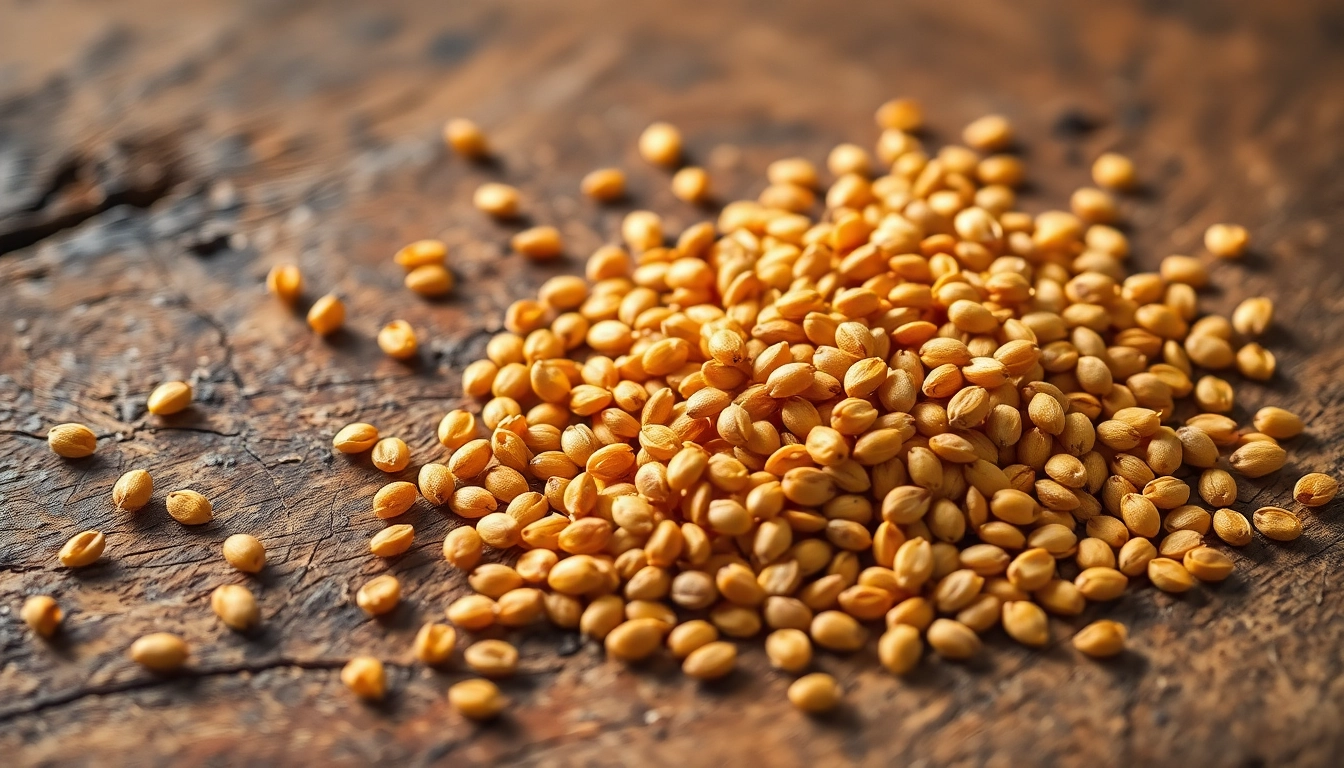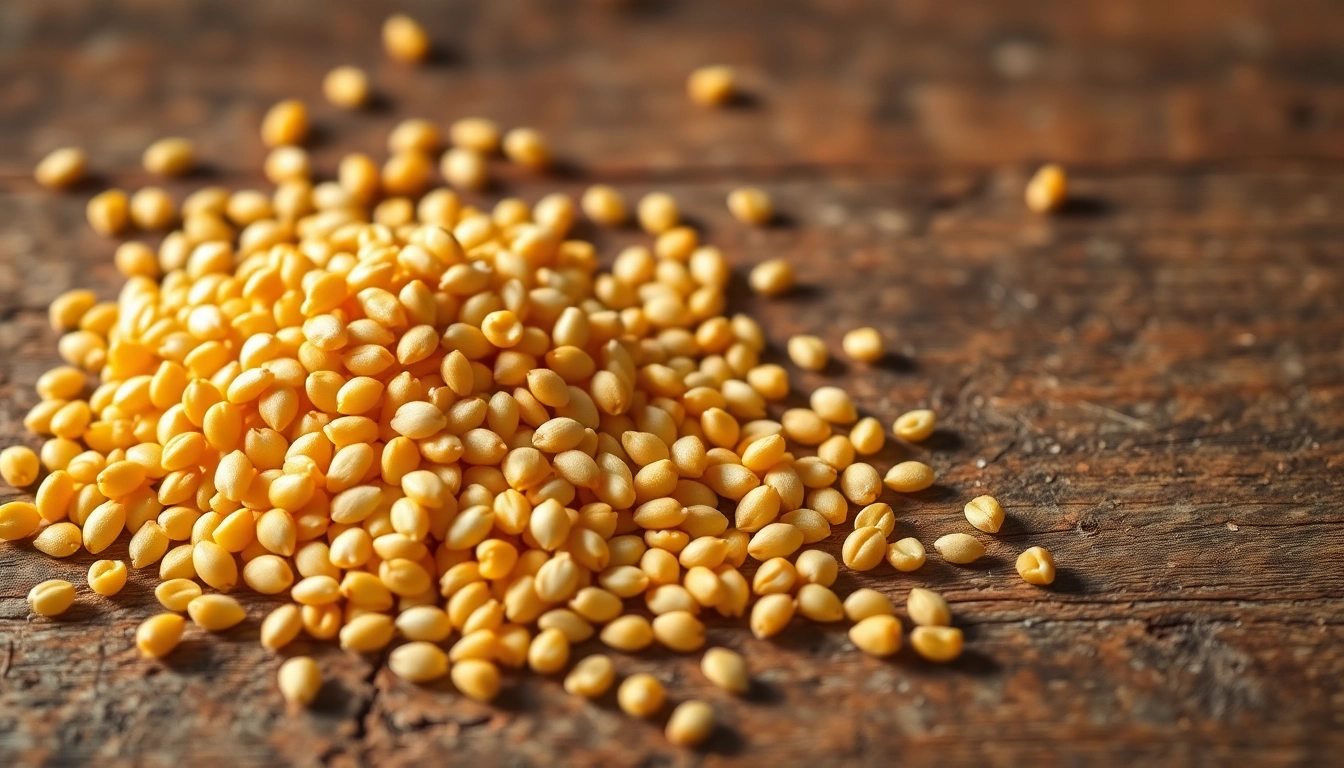Unlocking the Potential of Fenugreek Seeds: A Comprehensive Guide for Quality and Market Success
Fenugreek seeds, known scientifically as Fenugreek Seeds, have been a cornerstone in culinary traditions and herbal remedies across the globe for centuries. Their rich historical significance, coupled with numerous health benefits, has elevated their status in both traditional and modern markets. As a reputable manufacturer and exporter of authentic food products, Spice Nest recognizes the critical importance of sourcing high-quality fenugreek seeds to meet the stringent demands of global consumers and industry standards. This guide aims to provide an in-depth understanding of fenugreek seeds, emphasizing quality sourcing, innovative incorporation into product lines, and leveraging market trends to achieve export success.
Understanding Fenugreek Seeds: Origins and Benefits
Historical Significance of Fenugreek in Global Cuisine
Fenugreek, originating from regions like the Indian subcontinent, North Africa, and the Middle East, boasts a long-standing history intertwined with culinary and medicinal uses. Ancient civilizations valued fenugreek not only for its unique aroma and flavor profile but also for its medicinal properties. In Indian cuisine, fenugreek is fundamental, featured prominently in spice blends such as garam masala and used in various curries and pickles. Its popularity has since expanded worldwide, making it a staple ingredient in authentic dishes and global spice markets.
Health and Nutritional Advantages of Fenugreek Seeds
Modern nutritional science confirms fenugreek seeds as a powerhouse of health benefits. Rich in dietary fiber, proteins, vitamins (notably vitamin B6), and minerals like iron and magnesium, they support digestion, regulate blood sugar levels, and enhance lactation in nursing mothers. Studies also highlight their anti-inflammatory and antioxidant properties, making fenugreek an advantageous addition to functional foods and dietary supplements. For food manufacturers, leveraging these health credentials can boost market appeal, especially among health-conscious consumers seeking natural, nutrient-dense ingredients.
Why Sourcing Quality Fenugreek Seeds Matters
The efficacy and flavor profile of fenugreek directly depend on its quality. Substandard seeds may contain adulterants, inconsistent flavor, or reduced nutritional value, impacting product quality and consumer trust. Therefore, sourcing from certified, reputable suppliers ensures authentic, high-grade fenugreek seeds that meet international standards. High-quality seeds also offer better shelf life, ease of processing, and superior flavor retention, which are vital for developing premium products.
Choosing the Best Fenugreek Seeds for Your Business
Features of High-Quality Fenugreek Seeds
- Appearance: Uniform size, consistent color (golden-brown or amber), intact, and free from dirt or adulterants.
- Aroma: Characteristic sweet-bitter aroma, indicating freshness and proper curing.
- Flavor: Robust, slightly bitter with nutty undertones; flavor consistency enhances recipe reliability.
- Moisture Content: Low moisture (ideally below 12%) to prevent mold and microbial growth.
- Purity and Certifications: Certified organic, ISO, HACCP, and other relevant quality certifications.
Packaging Options and Storage Tips
To preserve fenugreek seed quality, proper packaging and storage are essential. Use airtight, moisture-proof packaging materials such as high-grade polypropylene, laminated bags, or vacuum-sealed packs. Label packaging clearly with batch, manufacturing date, and certifications. Store in cool, dry, and clean environments, away from direct sunlight, humidity, and pests. Proper handling extends shelf life and maintains flavor integrity, ensuring consumer satisfaction.
Certifications and Quality Assurances to Look For
- Organic Certification (if applicable)
- ISO 9001 Quality Management
- HACCP Food Safety Certification
- Fair Trade Certification
- EU Organic and Food Safety Standards
Partnering with suppliers who hold these credentials ensures compliance with international standards, facilitating smooth export processes and building credibility in discerning markets.
Incorporating Fenugreek Seeds into Your Product Line
Popular Fenugreek-Based Products and Recipes
Fenugreek seeds serve as an essential ingredient in various processed food formats such as spice blends, pickles, chutneys, and herb mixes. They are also ground into powders for sauces, seasonings, and dietary supplements. Traditional recipes encompass rich curries, savory snacks, and health food products. Emerging applications include fenugreek-infused teas, nutritional bars, and health supplements, providing diverse opportunities for innovation.
Product Development Tips for Manufacturers
- Flavor Optimization: Use high-quality seeds to ensure authentic aroma and taste. Consider roasting or toasting fenugreek seeds to enhance flavor profiles.
- Formulation Innovation: Combine fenugreek with complementary spices, herbs, or ingredients to create unique blends tailored for specific markets (e.g., herbal teas, health supplements).
- Consistent Quality Control: Standardize processing techniques to maintain uniform flavor, color, and texture across batches.
- Nutritional Enhancement: Incorporate fenugreek to boost fiber and protein content naturally, appealing to health-focused consumers.
Enhancing Flavor and Nutritional Profile Naturally
Natural enhancement involves minimal processing, preserving the inherent qualities of fenugreek seeds. Techniques such as dry roasting intensify flavor, while cold-press extraction depends on seed quality. Using organic fenugreek enhances marketability, catering to organic and clean-label trends. Consumers increasingly seek authentic, additive-free ingredients, making high-quality fenugreek seeds indispensable for premium product lines.
Market Trends and Export Opportunities
Global Demand for Fenugreek Seeds and Spices
The international spice market is experiencing significant growth, driven by rising awareness of the health benefits associated with traditional herbs. Fenugreek seeds are particularly sought after in regions like the Middle East, Europe, North America, and Asia-Pacific, aligning with trends toward natural and functional foods. The increasing popularity of vegetarian and vegan diets further fuels demand, as fenugreek is a rich plant-based protein source and flavor enhancer.
Key Export Markets and Logistics
Major export destinations include the USA, Germany, UK, Middle Eastern countries, and Southeast Asia. Efficient logistics involve partnering with reliable freight forwarders, understanding phytosanitary and import regulations, and adopting temperature-controlled warehousing for preserving seed quality during transit. Certifications such as organic, ISO, and fair trade simplify entry into these markets, building consumer trust and brand reputation.
Marketing Strategies for Fenugreek Seed Products
- Highlight health benefits through storytelling and labeling.
- Leverage organic and sustainability credentials for premium positioning.
- Participate in international trade shows (e.g., Biofach) to showcase products and connect with buyers.
- Develop informative content around traditional and modern uses of fenugreek to educate consumers and retailers.
Compliance, Certification, and Sustainability
Quality Standards and Certifications for Export
Export success hinges on adherence to international standards. Obtain certifications such as ISO 22000 for food safety, Organic certification (USDA Organic, EU Organic), HACCP for safety management, and Fair Trade to appeal to ethically conscious buyers. Regular audits and transparent documentation bolster compliance and streamline customs clearance.
Organic and Sustainable Sourcing Practices
Sustainable sourcing involves organic cultivation, minimal pesticide use, crop rotation, and fair labor practices. Ensuring traceability—from farm to shelf—builds consumer confidence and meets certification requirements. Collaborating directly with farmers ensures quality control, fair compensation, and long-term partnerships.
Ensuring Traceability and Transparency in Supply Chain
Adopt digital traceability systems such as blockchain or ERP platforms to monitor each batch’s origin, processing stages, and certifications. Transparency guarantees product integrity, mitigates risks, and aligns with consumer demand for ethically sourced and authentic ingredients.



